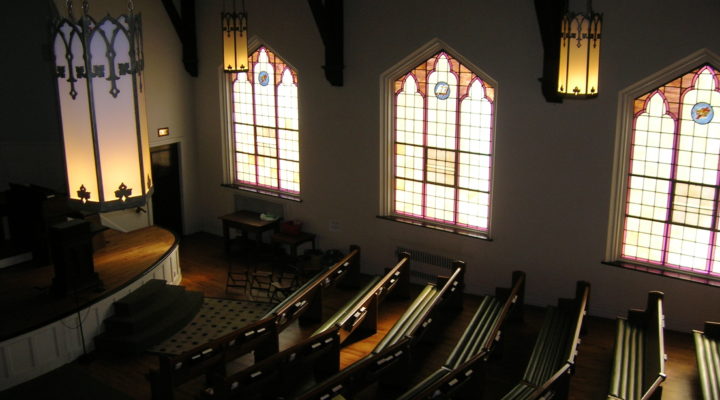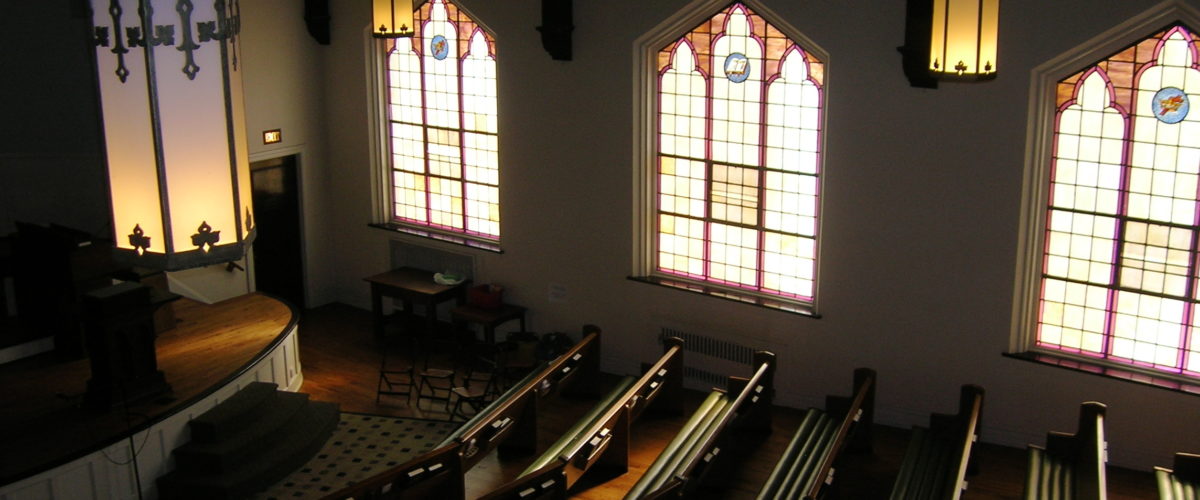Let me begin this article by acknowledging some truths about myself. I am a cisgender white female who has never been a pastor, though a minister I have been. I also am married to a cisgender white male who has been a pastor. So, from the outset, I recognize I come to this piece from a place of privilege, although I cannot boast quite as much privilege as the myriad white men who recently have been featured (here, here, here and here).
I also bring to the conversation the perspective that leaving church ministry was not by choice.
My husband and I met in seminary, where our callings aligned into a dream of serving a church congregation together — him as pastor and me as music minister. After graduation, he got a full-time ministry position, and I began teaching music in the county schools where we lived. I also got to work part-time as the children’s music associate at our church. It was fun, we were a team, but we weren’t the team. We were very happy in that sweet mountain town.
But just a few days past his second anniversary working there, we were told, with no explanation, we had to leave. We were offered a sum of money to “dismiss our duties effectively.” This was the first time I felt our ministries might not be welcome, but we were never given any reason why.
In the turmoil of this dismissal, we were fortunate to be sought out by another church that was interested in us. My husband would be full-time pastor, I would be part-time minister of music. This was it! Until it wasn’t. One member of the search committee saw on my twitter feed that I had re-tweeted the Presbyterian Church USA’s announcement that LGBTQ+ folks could be ordained in their denomination. That one tweet caused it all to fall through. This was the second time I felt our ministries were not welcome, this time because my beliefs were a liability.
After a few months of searching, we landed on our feet in a church and a city we loved. But God was stirring, and after a wonderful three and a half years, we felt called away. It was a very hard decision, but one to which we were confident God had led us.
… but this was a moderate Baptist church. We hoped we could help continue their wonderful reputation of being a stalwart for tolerance of differing opinions and healthy discussion.
We moved into the church parsonage and quickly integrated our lives into the town. I stayed home with our girls while my husband pastored our church. His dream! He finally got to be a senior pastor. We accepted this move knowing it was to a small, conservative town, but this was a moderate Baptist church. We hoped we could help continue their wonderful reputation of being a stalwart for tolerance of differing opinions and healthy discussion.
After about a year, the music minister on staff announced her retirement and recommended me as her successor. My first Sunday leading worship, I was overwhelmed with emotion. It was the culmination of eight years of patiently waiting and faithfully supporting my husband as he was called to different ministry positions. We were finally the team!

Mary Kate Deal
I got to plan fewer than a dozen worship services before, in October 2019, we were called into a meeting and were told some families were threatening to leave. They looked at my husband and asked him, “What are you going to do about it?” We were told in another meeting that God had told this person we “were no longer called to lead” their church.
The congregation was happy with my husband as pastor, but when I came onto staff, my ministry and beliefs had yet again become a liability. I was too progressive and too verbal about my support for marginalized communities. They told us to hand in our keys, and we would be supervised as we packed up our offices. This was the third time I felt our ministries were not welcome.
We were irreparably damaged by The Church. This would be the final time a church would ever tell us we could not lead them, because we would not let ourselves be put in this position ever again.
I wish I could say our story is unique. But what I believe isn’t being said about The Great Pastor Resignation is the writing on the wall that many of those ministers saw. I believe they were able to get out while it was still their choice, to leave with their dignity still intact.
Perhaps if Christian networks were as vocal about their stance on LGBTQ+ and BIPOC leadership as they were about female leadership, my husband and I would never have been in these predicaments.
When we looked around us at the rubble that was our callings and ministries, we saw friends helping us clean up. They sent cards with words of encouragement, offered us retreat leadership opportunities and graciously acted as references. They did what they as individuals were capable of doing. And we were and are so thankful. But what we didn’t have was an institution that would stand up for us and support us.
Each of these churches claimed to be a moderate Baptist church, but when it came down to it, the priesthood of the believer only applied to individuals who pay the salaries, not those receiving them. Perhaps if Christian networks were as vocal about their stance on LGBTQ+ and BIPOC leadership as they were about female leadership, my husband and I would never have been in these predicaments.
We tried to stay. We kept going back, trusting in our callings to church ministry. We wanted to be among the people and to walk alongside them. After years of pouring our hearts and souls into these churches who were part of a greater fellowship, it became abundantly clear time and time again that we were not welcome.
We now are in a healthy place, but I’m not sure how long it will take us to be completely healed. My husband works as the director of pastoral care in a continuing care retirement community supported by the Episcopal and Presbyterian churches. I now work as a virtual assistant for several clients who support marginalized communities on a daily basis.
I do not blame a single minister for leaving church ministry — especially the strong women, people of color and queer ministers who have walked away. I applaud their bravery for recognizing toxicity or toxic neutrality around them and for seeking places where they are valued and where they can be authentic to who God has called and created them to be.
These stories belong to my husband and me, but the iterations of them that so many others can tell are abundant. It is my hope that by telling our story, others will know they are not alone and there is no shame in walking away or in being forced to leave. And as you go, shake off the dust from your feet and seek out the places where you are welcome just as you are.
Mary Kate Deal serves as a social media coordinator and virtual assistant for several clients whose missions seek to give voice to and advocate for marginalized communities. She and her husband, William, live outside Lynchburg, Va., with their 7-year-old twin daughters.
Related articles:
Departure: Why I left the church
I left the pastorate while still loving it


